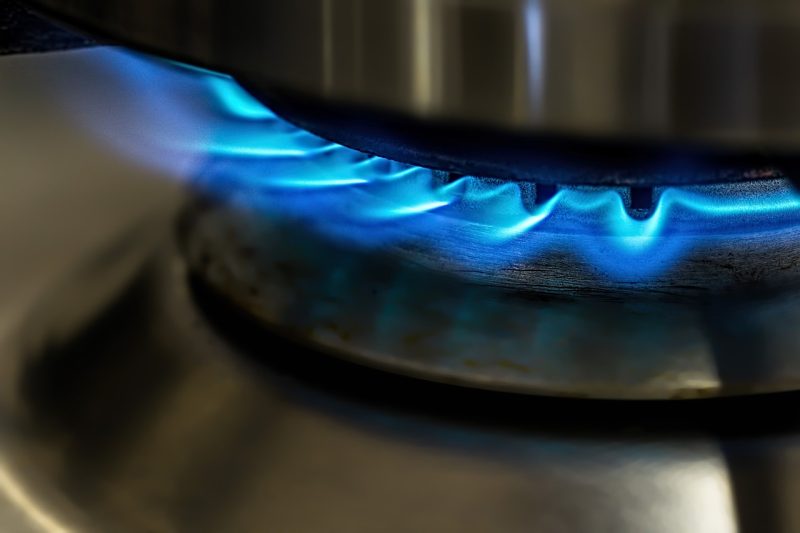In the realm of energy consumption, particularly for heating homes and powering businesses, the debate between traditional solid fuels and modern alternatives like Liquefied Petroleum Gas (LPG) is more than just a matter of choice—it’s a reflection of our commitment to a sustainable future. As an expert deeply entrenched in the dynamics of energy efficiency and environmental stewardship, I firmly believe that the switching from solid fuels to LPG is not just beneficial, but imperative.
The Environmental Imperative
Firstly, let’s consider the environmental impact. Solid fuels, such as coal and wood, have been the backbone of heating for centuries. However, their combustion process is notoriously inefficient and polluting. The release of high levels of particulates, sulfur dioxide, and carbon monoxide is not just a theoretical concern—it’s a tangible threat to air quality and public health. In contrast, LPG burns much cleaner, producing significantly fewer pollutants and greenhouse gases. This isn’t just a marginal improvement; it’s a leap towards meeting our carbon reduction targets, a goal that Ireland, along with the rest of the world, is striving to achieve.
Economic and Practical Advantages
From an economic standpoint, the switch to LPG is equally compelling. While the initial setup for LPG might seem daunting, the long-term savings are undeniable. LPG systems generally have a higher efficiency rate, meaning less fuel is needed to produce the same amount of heat compared to solid fuels. For businesses, this efficiency translates into reduced operational costs—a critical factor in today’s competitive market.
Moreover, LPG offers unparalleled versatility and control, which is a boon for both homeowners and businesses. The ability to regulate heat more precisely and the convenience of a cleaner fuel source cannot be overstated. In a world where time is a precious commodity, the ease of use and maintenance of LPG systems are invaluable benefits.
Addressing the Challenges
Of course, transitioning to LPG is not without its challenges. The infrastructure for LPG, particularly in rural areas, needs to be strengthened. There’s also the matter of upfront costs and the need for subsidies or incentives to make the switch more accessible to a broader range of the population. However, these challenges are not insurmountable. With concerted efforts from the government, industry, and consumers, the transition can be a smooth and beneficial journey for all.
A Call to Action
As an advocate for sustainable and efficient energy solutions, I urge homeowners and businesses alike to consider the switch to LPG. It’s not just a matter of personal or economic benefit—it’s a step towards a cleaner, healthier environment for future generations. The journey from solid fuels to LPG is a path to a more sustainable and prosperous future, and it’s a journey worth taking.
This transition is particularly relevant in the context of both residential and commercial sectors, where energy demands are incessant and diverse. In this article, we will delve into the multifaceted benefits of switching from traditional solid fuels to LPG, underscoring its implications for homes and businesses alike.
- Enhanced Efficiency and Performance:
LPG boasts a higher calorific value compared to solid fuels like coal or wood. This translates to a more efficient energy output, ensuring that homes and businesses can achieve the same, if not greater, levels of heating or energy provision with lesser fuel consumption. For businesses, this efficiency can lead to significant cost savings, while homeowners can enjoy a more consistent and controllable heating experience.
- Reduced Environmental Impact:
The shift to LPG is a leap towards environmental responsibility. Unlike solid fuels, LPG combustion produces fewer pollutants such as soot, ash, and particulate matter. This reduction in air pollutants is crucial for businesses aiming to comply with stringent environmental regulations and for homeowners concerned about their carbon footprint. Moreover, LPG’s lower carbon dioxide emissions align with global efforts to combat climate change.
- Versatility and Convenience:
LPG’s versatility is unmatched, catering to a wide range of applications from heating and cooking to powering industrial machinery. This flexibility is invaluable for businesses that require a reliable and adaptable energy source. For homeowners, the convenience of LPG, available in cylinders or through bulk delivery, eliminates the challenges associated with storing and handling solid fuels.
- Improved Safety and Health Considerations:
Transitioning to LPG also enhances safety and health conditions. Solid fuels pose risks such as fire hazards and air quality issues within homes and workplaces. LPG, being a cleaner-burning fuel, significantly reduces these risks. Additionally, the switch to LPG can mitigate health concerns related to the inhalation of smoke and fine particles, particularly in enclosed spaces.
- Cost-Effectiveness in the Long Run:
While the initial setup for LPG might seem higher than continuing with solid fuels, the long-term economic benefits are substantial. The increased efficiency of LPG means lower fuel consumption, and consequently, reduced ongoing costs. For businesses, this cost-effectiveness extends to maintenance, as LPG-burning equipment generally requires less upkeep compared to those used for solid fuels.
- Alignment with Energy Transition Trends:
Embracing LPG aligns homes and businesses with the broader trends in energy transition. As the world moves towards cleaner and more sustainable energy sources, adopting LPG positions entities at the forefront of this shift. This alignment not only enhances the environmental credentials of businesses but also future-proofs homes against the phasing out of more polluting fuel sources.
The transition from solid fuels to LPG is more than just a change in energy sources; it’s a strategic decision that brings efficiency, environmental benefits, safety, and long-term cost savings. For businesses, it aligns with corporate responsibility goals and regulatory compliance, while for homeowners, it offers a cleaner, safer, and more efficient way to meet their energy needs. As the world continues to pivot towards sustainable energy solutions, the switch to LPG is a step in the right direction for both homes and businesses.










